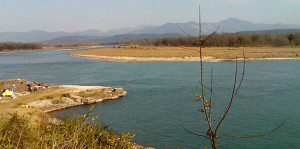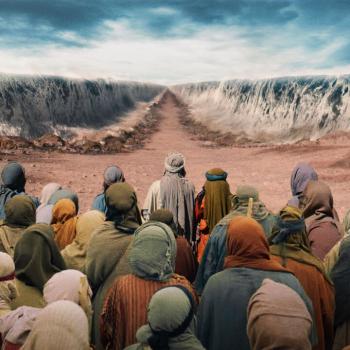 The language of “rights” tends to win all arguments. There are “human rights.” These include “women’s rights,” “minority rights,” “gay rights.” Then people started asserting “animal rights.” A new strategy for some environmentalists is to assert “nature rights.”
The language of “rights” tends to win all arguments. There are “human rights.” These include “women’s rights,” “minority rights,” “gay rights.” Then people started asserting “animal rights.” A new strategy for some environmentalists is to assert “nature rights.”
In a recent victory for that movement, a river in New Zealand held sacred to the Maoris has been legally declared a “person.” Similarly, a court in India declared that for the purposes of law the Ganges river, sacred to the Hindus, is also a “person.”
This is an odd accommodation for secular governments to be so deferential to religions. But the impetus is not so much religious as environmentalist. Wesley J. Smith, who writes about these developments (read him after the jump), quotes an environmental defense organization that is behind other attempts to claim “rights” for other “natural communities,” such as mountains, streams, and forests.
For an overview of this movement, see the Global Alliance for the Rights of Nature website. The nation of Ecuador has formally codified the rights of nature.
Smith points out the painful irony of affirming the personhood of rivers while denying the personhood of unborn children. Similarly, some of the same people who are sympathetic to the rights of mountains and forests are opposing human rights to religious liberty, freedom of speech, and others principles of the Bill of Rights (such as the right to keep firearms). And they are insisting on “nature rights” while rejecting “natural law.”
From Wesley J. Smith, Rivers Declared to Be “Persons” | First Things:
We live in truly surreal times. In an age when all human beings still do not have access to human rights—and when some of the world’s foremost bioethicists declare that the unborn and cognitively disabled are not persons—radical environmentalists and others are agitating to grant “rights” to objects in nature.
In the latest phase of this descent into metaphysical madness, two rivers have been declared to be legal “persons” endowed with human-style rights. In New Zealand, the Whanganui River was granted the same legal rights as a human being. The reason? The Maori tribe considers the river sacred and an “ancestor.”
Religion was also why an Indian court declared the Ganges River, considered sacred in the Hindu faith, to be a “person.” . . .
Radical environmentalists supporting these declarations are playing a cynical game. They don’t believe the theology expressed in these laws. But they are happy to harness the religious energy of the faithful to promote their own quest to destroy human exceptionalism by granting legal rights to nature and its various aspects—and not just to rivers believed to be sacred.
Granting “rights” to nature requires us to give equal consideration to flora, fauna, and geological phenomena that might be adversely affected by human activity. And more subversively, it will open the courtroom doors to radical environmentalist lawyers who will surely fire a barrage of lawsuits seeking to uphold the rights of their animal, vegetable, river, mountain, meadow, and microorganism clients. Indeed, the Community Environmental Legal Defense Fund—a driving force within the Nature Rights Movement—states on its website:
[T]he rights of ecosystems and natural communities are enforceable independently of the rights of people who use them. That means that people within a community could step “into the shoes” of a mountain, stream, or forest ecosystem, and advocate for the rights of those natural communities. It calls for a system of jurisprudence in which those ecosystems are actually “seen” in court. Damages are assessed according to the costs of restoring the ecosystem to its pre-damaged state.
Photo of the Ganga River: Ekabhishek at English Wikipedia [GFDL (http://www.gnu.org/copyleft/fdl.html), CC-BY-SA-3.0 (http://creativecommons.org/licenses/by-sa/3.0/) or CC BY-SA 2.5-2.0-1.0 (http://creativecommons.org/licenses/by-sa/2.5-2.0-1.0)], via Wikimedia Commons















